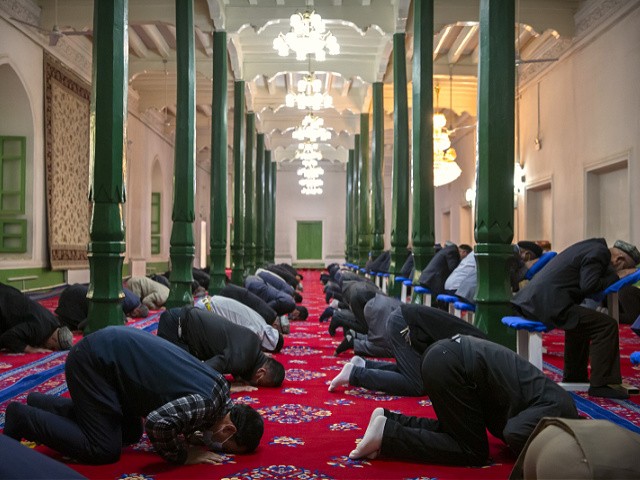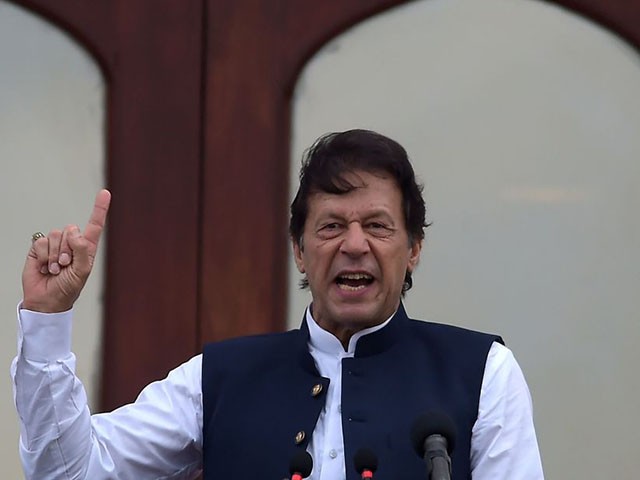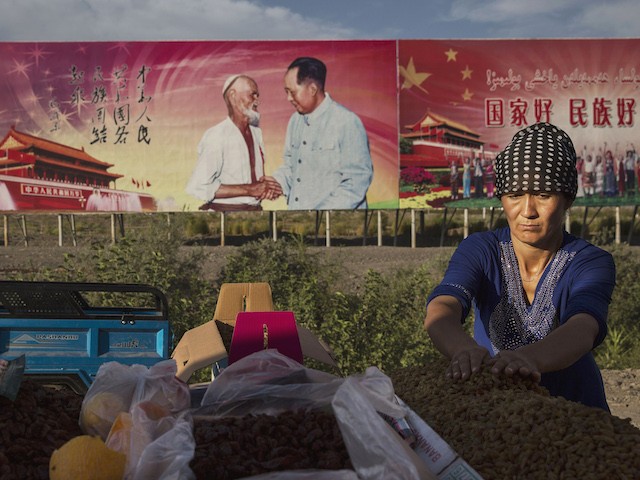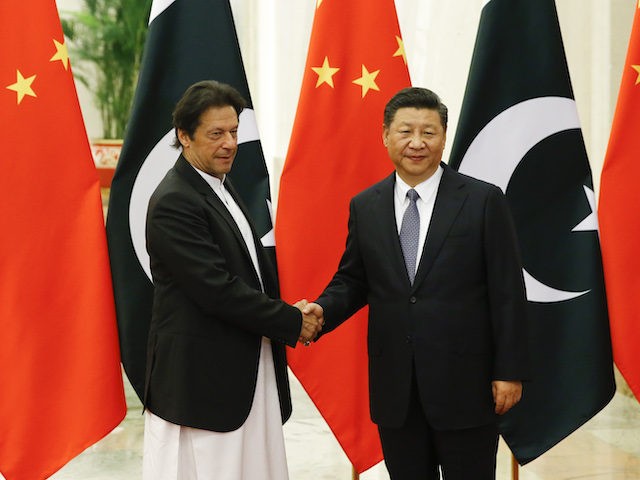Pakistan has played a critical role over many years in helping China suppress the Uyghur expat community within its borders, according to an August report from the Uyghur Human Rights Project (UHRP) and the Oxus Society for Central Asian Affairs.
Beijing is currently orchestrating a genocide against the ethnic group in its northwestern Xinjiang province.
Bradley Jardine, director of research at Oxus, blasted the government of Pakistan’s Islamist prime minister, Imran Khan, for its involvement, saying, “it is urgent that the international community recognise that Imran Khan has not only been silent on the plight of the Uyghurs, but that his government has been fully complicit in China’s crackdown.”
The August report, published prior to the Taliban’s conquest of Kabul, outlines efforts by Chinese neighbors Afghanistan and Pakistan to repatriate the Uyghurs living within their borders to China. While many of these nations have formal extradition treaties with Beijing, and return China’s political targets through those conventional channels, Beijing’s methods to track its dissidents are often less direct. Digital surveillance, separating families at border checkpoints, funding “educational” operations for Uyghur expats to indoctrinate them, threatening relatives still in the country, are just some of the methods the report details by which China oppresses Uyghurs beyond the national borders.
The joint report heavily emphasizes Chinese efforts in Pakistan, dividing the communist regime’s anti-Uyghur operations in the country into four distinct phases beginning in 1991. The first of these, 1991-2001, was marked by the fall of the Soviet Union and the rise of Muslim, Turkic nations to Xinjiang’s West. Pakistan arrested or deported 27 Uyghurs to China during this period.

Uyghurs and other Muslims pray at the Id Kah Mosque in Kashgar in western China’s Xinjiang Uyghur Autonomous Region, as seen during a government organized trip for foreign journalists, Monday, April 19, 2021. (AP Photo/Mark Schiefelbein)
From 2001-2008, with the outbreak of the War on Terror, China reportedly coaxed the Pakistanis into handing over or detaining another 17 under security pretenses. The third phase, 2009-2014, saw an escalation of Chinese efforts and the surrender or arrest of yet another 16. The current phase has been marked by a dramatic increase in extra-legal repression while official diplomatic efforts have thus far seen yet 16 more Uyghurs arrested or deported.
Pakistan is closely allied to the Communist Party of China. The China Pakistan Economic Corridor (CPEC) forms a critical component of the Belt and Road Initiative (BRI), China’s investment scheme to expand its influence in developing nations. Beijing aims to restore the Silk Road trading network between Asia and western Europe by offering high-interest loans to developing nations to build infrastructure and requiring them to hire Chinese companies for the projects. When the debtor nation defaults on the loan, China seizes control of the project.
Both Pakistan and China share borders with war-torn Afghanistan and mutual rival India, making Islamabad’s cooperation a necessity for Beijing. Pakistan’s Islamist prime minister, Imran Khan, took power in 2018. Reports at first indicated his government was concerned Islamabad could not handle the onerous Chinese loans it had taken out for BRI projects, though Khan has yet to make any public statements to that effect and the country remains a committed member of the initiative.

Pakistan’s Prime Minister Imran Khan addresses the nation outside the Prime Minister Secretariat building in Islamabad on August 30, 2019. (Aamir Qureshi/AFP/Getty Images)
Khan, an adamant proponent of political Islam who has called for global blasphemy laws against criticizing the religion, publicly rejected the reports of Uyghur genocide in Xinjiang this year. Khan’s phrasing indicated the merits of the Chinese denials were not his primary motivation.
“Because of our extreme proximity and relationship with China, we actually accept the Chinese version,” he said before blasting the Western world as “hypocritical” for highlighting the issue. “There are much worse human rights violations taking place in other parts of the world such as in occupied Kashmir.”
In Khan’s own backyard, however, the Ex-Chinese Association, a state-supported organization, is reportedly funding schools in Uyghur neighborhoods, teaching them Mandarin, and working to instill loyalty to Beijing, even as the Uyghurs living in Pakistan would technically owe loyalty to Islamabad.
The Chinese Communist Party is conducting a genocide of the Uyghurs in Xinjiang, known as East Turkestan among the natives who consider the Han Chinese invaders. The United States believes Beijing has detained up to 3 million Uyghurs, as well as members of other Muslim-majority ethnic groups such as the Kazakhs and Kyrgyz, in its elaborate network of over 1,200 concentration camps.
Escapees from these facilities tell of egregious human rights violations, many of which directly target the ethnic group’s ability to sustain itself, such as forced sterilization and abortion. This comes alongside communist indoctrination, compulsory education in and use of Mandarin, forced labor, brutal torture, and systemic rape.

An ethnic Uyghur woman arranges raisins for sale at her stall with a billboard showing the late Communist Party leader Mao Zedong in the background before the Corban festival on September 8, 2016, in Turpan County, in the far western Xinjiang province, China. (Kevin Frayer/Getty Images)
China acknowledges the existence of these camps but labels them “vocational training” centers. The official Party line insists the Uyghurs need such “training” to effectively participate in the Chinese economy and would otherwise become prime targets for jihadist recruitment. “Graduates” of these camps often become slave laborers in Han Chinese-majority areas far from their homeland. Beijing has moved to silence Uyghurs highlighting the genocide and denounced camp survivors as “actors” working against the regime.
Xinjiang, in China’s far West, has been part of various Chinese realms historically, including the Hang and Tang dynasties, though their control of the area was both tenuous and intermittent. Mandarin is not indigenous to the region nor is Chinese culture. The Uyghur lands did not become a permanent part of the Chinese state until the Qing acquisition of Xinjiang in the 1700s. The Qing, however, were a Manchurian dynasty, not ethnic Han Chinese.

COMMENTS
Please let us know if you're having issues with commenting.